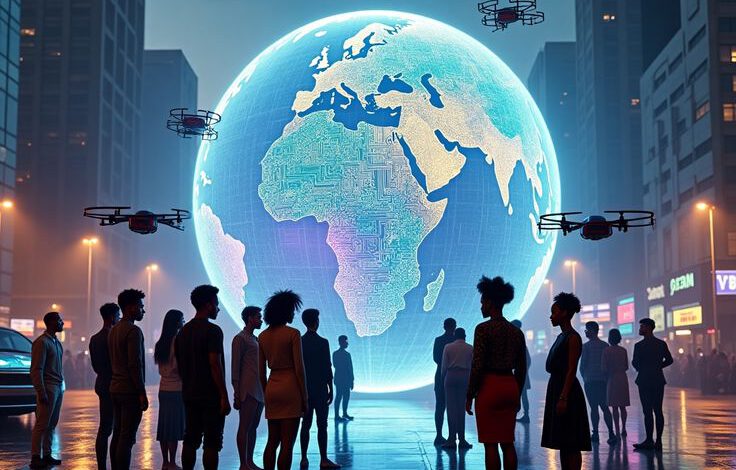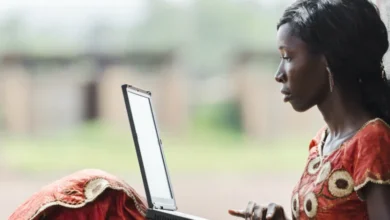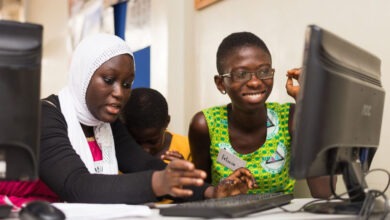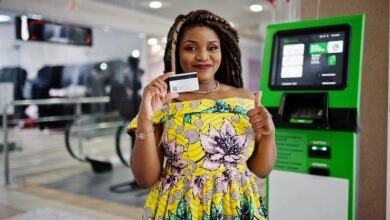Are Africans Comfortable With AI in Daily Life ?

A few weeks ago, my aunt called my cousin, who was in Lagos. When he picked up, she was excited. She glanced at me from a distance, and I noticed her smile. Bossing Siri like an expert gives her so much joy,” I told myself”.
So, it made me think: what is holding the rest of Africa back from using artificial intelligence if someone in their 60s can do it so smoothly? This article will look at how artificial intelligence has changed Africa and how comfortable people are with it.
Are Africans comfortable with AI?
Before iPhones were popular among our classmates, my roommate and I used Android phones during my university years. We were both excited to look at its features when she finally got one. Yes, the camera was outstanding; the voice recognition was the main feature that drew our attention. I recall being particularly impressed after seeing my aunt talking to Siri on the phone. It was my first direct experience with seeing older folks using artificial intelligence.
Gallup News made a report that 99 percent of Americans utilize at least one AI-powered product. A similar shift is occurring throughout Africa, indicating a profound shift in the way we live and work on a global scale. Yes, the globe is developing every second, and Africa is not being left behind. You probably interact with artificial intelligence (AI) three to five times a day without even recognizing it, whether at home or at work.
Intelligent suggestions on your phone or chatbots on banking apps are examples of how artificial intelligence is incorporated into everyday life.
How is artificial intelligence changing Africa?
Did you know that South Africa uses artificial intelligence more than any other African country? According to Google Trends statistics, South Africans are frequently among the first to experiment with new artificial intelligence technologies as they become available. Scroll down to see the crucial areas where AI is making significant progress within our ecosystem.
Agriculture: The influence of AI goes far beyond South Africa’s cities. For instance, the AgricPredict app in Zambia has transformed traditional agriculture by giving rural farmers up-to-date information on managing crop diseases and pests. This AI-powered application demonstrates that AI can be a potent ally in even the most resource-constrained environments by assisting farmers in making better decisions, increasing crop yields, and eventually improving their standard of living.
Medical Care: Progress in artificial intelligence is also helping the healthcare industry in Africa. Artificially intelligent chatbots and diagnostic devices provide essential support in areas with a shortage of medical experts by assisting patients with symptom assessments and providing health advice in their native tongues. By bridging gaps in healthcare access, these technologies increase underprivileged groups’ access to high-quality services.
Transportation: Additionally, artificial intelligence is beginning to pick up speed in the transportation sector. Tesla’s autopilot car, which is extensively utilized but not yet available in other countries, was introduced in 2020 by the Elon Musk vehicle company. The goal of creating an artificial intelligence-powered vehicle is to provide comfort to its consumers.
Banking and finance: Many decades ago, finance was difficult due to its extensive paperwork and documentation. However, after artificial intelligence was developed, those works were reduced to their most basic form and converted to digital representation. Furthermore, artificial intelligence may now talk with you on your mobile banking apps and refer you to customer service in case of an emergency.
Marketing: With the advent of artificial intelligence (AI), many businesses are now able to operate more freely. Google Ads helps determine various marketing KPIs, including click-through and conversion rates. Artificial intelligence has made it possible for corporate marketers to manage hundreds of campaigns and personalize services to individual customer needs.
Gaming: Mobile gaming is expanding throughout Africa as more individuals use smartphones. Programmers now use surveys gotten from a region to build an AI-based game that is specific to them.







